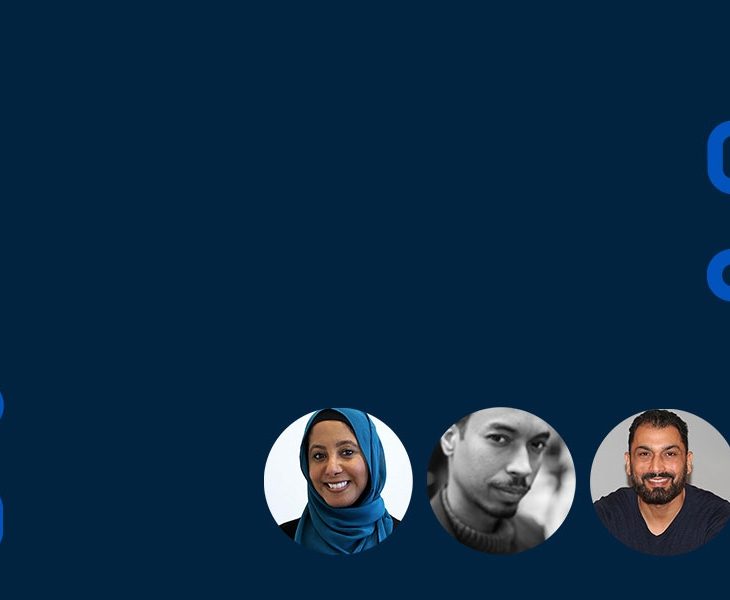The Day After the Election – A Conversation
October 12, 2020

What do we do the day after the election? What is the America we are building together? Listen in to this rich conversation as these civic leaders engage in a rich discussion on preparing to live and lead in 2021 America.
Zina Jacque: “I don’t want to be afraid of being broken open. In the Hebrew scripture Micah talks about life beginning in the second chapter and when things are broken open the leader will rise up and go forward. We learn in the gospel that light breaks open darkness. In this faith tribe the greatest breaking open was the tomb and resurrection. Nothing happens unless something is broken open. I can’t – In the chaos around us – I can’t be afraid of the breaking open of my heart, especially my heart. … It is in that breaking that new beginnings occur. COVID has broken us up. Pardeep, you are right, may we not lose those lessons. I want to call to our individual communities to be sure we have — we have drunk long and hard and deeply of those values we profess and take it out as a vessel full to share with those we meet and sit at the table and share that as we are broken open, knowing that that’s where the beginning of healing — where the beginning occurs.”
Pardeep Kaleka: “I was a police officer for 5 years in one of the roughest parts of Milwaukee, Wisconsin. There is a slew of historical injustices that have been committed, systemically… I did that for about 5 years until I became an educator and I did that for about ten years. My introduction into the faith world came after a shooting that killed 7 people, one of them my father and Temple President at the Sikh Temple of WI at Oak Creek. I had an antagonistic relationship with faith my entire life until that happened. Then I started to see something a little bit differently. After that I reached out to the guy that started the organization that the shooter belonged to. … He was a former white supremacist I sat down with him and asked him why do people do these things? He simply said to me hurt people, hurt people or hurt themselves. I thought about that and reflected on our society and really how much of our society is hurting, needs a catharsis both externally and internally. My journey going forward and what that looked like and compassion was something that kept coming up.”
Hind Makki: “The institutions of this nation are strong. … What I was reminded was that when I was thinking about the institutions of this country, really I’m thinking about the people who make these institutions. Those people who poured into the airports, the judges and the lawyers and all of the people who said we need to stand up for what we believe is American and that is a country that welcomes immigrants. These are actually the institution that I was thinking of, the people are the institutions of this country. I think that thinking, that reframing of what it means to have an institution in this country is really the guiding light in many ways of how I am thinking about this conversation this morning. This idea of how can we center racial equity in building an interfaith America the day or in the days after this next election.”
John Wood, Jr: “…the non-contradiction between, on the one hand, passionately advocating for the things that you believe in and consider urgent politically — supporting the candidate you are going to vote for, supporting the policy changes and the structural reforms that you see as necessary for justice and equity et cetera. I try to emphasize the noncontradiction between advocating for those things on the one hand and on the other hand building out the fabric of our relationships in this country with another through that spirit of good will, love and empathy that we have talked about here. It is worth noting why these things feel like contradictions. Part of what motivates us toward justice is not just idealism but a reaction to the pain we are feeling. … That is not to say that pain is not a justified motivation for seeking progress. It certainly is. But it must be a fire that is channeled in a direction that ultimately feeds our ability to wield morale force as opposed to the force of mere condemnation. Sometimes that’s what happens to us. We can ourselves be innocent victims of a certain circumstance in society. But because we take hatred in we return that. Even if we are doing it in politically understandable cause it doesn’t mean that the effects of that sort of spirit in our actions doesn’t ultimately run counter to the world that we are trying to build. If on the other hand in our communities and our spiritual practices we are able to center ourselves in a place of grace on the inside then we can find a way to wield that moral and spiritual power in our activism, in our politics, while doing so in a way that still allows us to speak to the conscious center of the people who we are trying to change so we can try to make the kinds of coalitions that can ultimately yield the fruits of the society that is reborn.”
Share
Related Articles
American Civic Life
American Civic Life
Is This a Time for Bridgebuilding? 5 Leaders in Conversation
Racial Equity
A Year After George Floyd’s Murder: How Black Interfaith Can Give Hope to America



